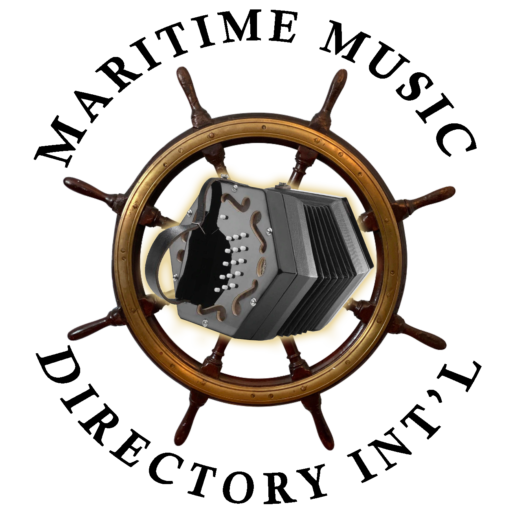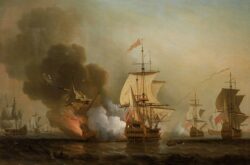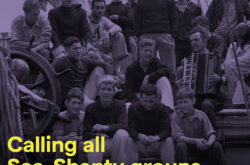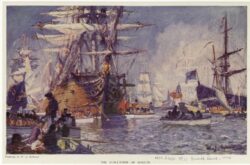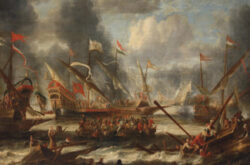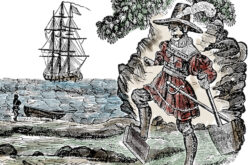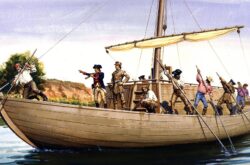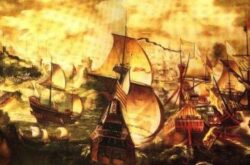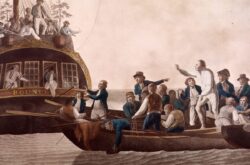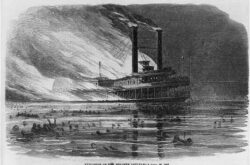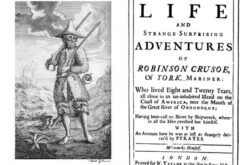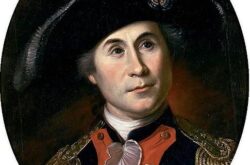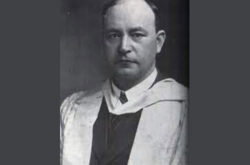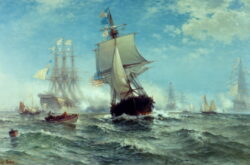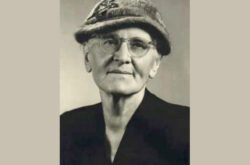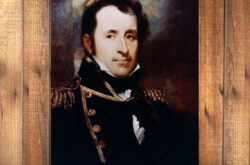Spanish galleon San José sinks in battle (8 June, 1708)
June 8, 1708 the count of Casa Alegre knew a squadron of English warships was lurking in the area, but he thought he could avoid it. As captain of the Spanish galleon San . . .
The Great Australian “Shanty Off!”
The Great Shanty Off! Calling all Sea-Shanty groups!
We are seeking expressions of interest from shanty groups (big or small) located on the Eastern Seaboard of Australia . . .
Battle of Boston Harbor (1 June 1813)
USS Chesapeake versus HMS Shannon happened on June 1st 1813 in Boston Harbor and is referred to as the Battle of Boston Harbor.
At Boston, Captain James Lawrence took command . . .
Battle of Dover, 29 May 1652
The naval Battle of Dover (also known as the Battle of Goodwin Sands), fought on 29 May 1652 was the first engagement of the First Anglo-Dutch War between the navies of . . .
Captain Kidd Dies (23 May 1701)
On May 23, 1701 the infamous English Pirate, Captain Kidd, dies.
Kidd’s early career is obscure. It is believed he went to sea as a youth. After 1689 he was sailing as . . .
Lewis and Clark Depart 14 May 1804
One year after the United States doubled its territory with the Louisiana Purchase, the Lewis and Clark expedition leaves St. Louis, Missouri, on a mission to explore the . . .
Ed Trickett Dies on May 10, 2022
Ed was a well-loved musician in the folk music community. He appeared on over 40 recordings, most of them with Folk Legacy Records, now part of the Smithsonian Folkways Recordings. His discography includes . . .
Captain Blood Steals Crown Jewels (9 May 1671)
In London, Thomas Blood, an Irish adventurer better known as “Captain Blood,” is captured attempting to steal the Crown Jewels from the Tower of London.
Blood, a Parliamentarian . . .
King Charles II grants charter to Hudson’s Bay Company
May 2, 1670 – King Charles II of England grants a permanent . . .
Drake Assaults Cádiz (April 29, 1587)
Referred to as the “singeing of the beard” of King Philip II of Spain.
In 1585 the tension between the England and Spain erupted into the Anglo-Spanish War of . . .
Mutiny on the HMS Bounty (April 28, 1789)
Three weeks into a journey from Tahiti to the West Indies, the HMS Bounty is seized in a mutiny led by Fletcher Christian, the master’s mate. Captain William Bligh and . . .
Steamboat Sultana Explodes (1865)
On April 27, 1865 the steamship Sultana exploded on the water. This Civil War ship explosion killed more people than the Titanic sinking.
The Sultana was only legally allowed . . .
John Paul Jones burns Whitehaven, England (1778)
At 8 a.m. on April 23, 1778, John Paul Jones, with 30 volunteers from his ship, the USS Ranger, launches a surprise attack on the two harbor forts at Whitehaven, . . .
Sir Richard Runciman Terry Dies (1938)
Richard Terry was born in 1864 in Ellington, Northumberland. At the age of 11 he started playing the organ at the local church. Educated at various schools in South Shields, . . .
John Paul Jones Sets Out (1778)
Revolutionary War commander John Paul Jones sets out to raid British ships
On April 10, 1778, Commander John Paul Jones and his crew of 140 men aboard the USS Ranger set . . .
Joanna Colcord Dies (1960)
Joanna Carver Colcord (March 18, 1882 – April 8, 1960) was pioneering social worker, and author. Born at sea, she was also notable for publishing texts on the language, . . .
Inventor of the Naval Chronometer Born (1693)
Born today, April 3, 1693, John Harrison, the cantankerous Yorkshireman who would go on to invent the naval chronometer and solve the mystery of calculating longitude at sea.
Read . . .
United States Congress authorizes privateers to attack British vessels (1776)
Because it lacked sufficient funds to build a strong navy, the Continental Congress gives privateers permission to attack any and all British ships on April 3, 1776.
In a . . .
American Naval Hero Killed in Duel (1820)
U.S. Navy officer Stephen Decatur, hero of the Barbary . . .
